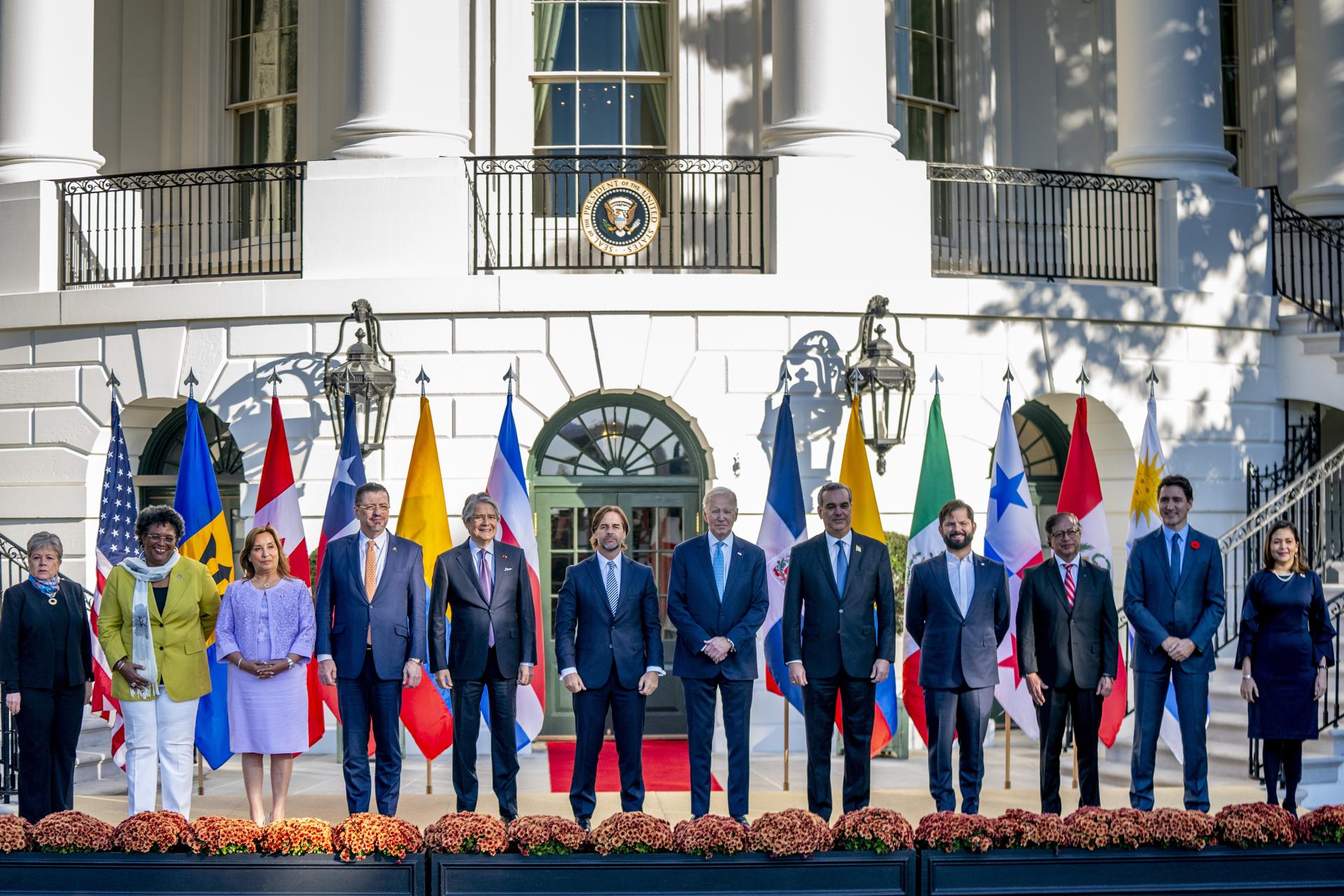The first Summit of the Alliance for Economic Prosperity in the Americas (APEP) concluded this Friday at the White House with an agreement on priorities between the twelve political leaders who participated and with the war in Gaza sneaking into the conversation.
The leaders of the United States, Canada and ten Latin American countries committed to making this alliance a lasting forum for economic development in the region and sealed their commitment with a minimum agreement, which does not contain figures but general lines.
There are no references to Israel in the text, since the summit was about the economic development of the region, but as confirmed by the participants, it was one of the topics discussed.
This was confirmed to the press by the president of Colombia, Gustavo Petro. The Colombian assured that he asked his American counterpart, Joe Biden, to take action to stop the death of civilians in the Gaza Strip.
“I told Biden that the massacre could not continue to be allowed,” the president said in a statement in front of the residence of the Colombian ambassador to the United States.
Petro explained that although the US president did not respond, he hopes to have “recorded” his position.
For his part, Chilean President Gabriel Boric stated that he is leaving Washington knowing that Biden shares concern about Israel’s possible disproportionate response in its attack on Gaza.
“The peace of mind that I have from this trip is that President Biden knows that he shares the concern,” he said in a meeting with the media. He also spoke about the issue with Canadian Prime Minister Justin Trudeau, and with Colombian President Gustavo Petro, with whom he met in the morning.
Boric and Petro are two of the Latin American leaders most critical of the response that Israel is having in the Gaza Strip to end Hamas.
The Chilean president also conveyed his concern to Biden in a private meeting they had on Thursday at the White House, while at an event held at the Inter-American Development Bank (IDB) he called on Latin American countries to unite to demand that “ respect international law” in the conflict.
A first step in the alliance
The Alliance for Economic Prosperity in the Americas is an initiative that Biden launched in 2022 during the Summit of the Americas in Los Angeles and which aims to combat economic inequality and promote regional integration.
This Friday was the first and Biden, Petro, Boric, Trudeau and the presidents of Peru, Dina Boluarte, participated; Uruguay, Luis Lacalle Pou; Dominican Republic, Luis Abinader; Costa Rica, Rodrigo Chaves; and Ecuador, Guillermo Lasso.
Also the Prime Minister of Barbados, Mia Mottley, as well as the Foreign Ministers of Mexico, Alicia Bárcena, and Panama, Janaina Tewaney.
The day began with an official photograph of the leaders in front of the south portico of the White House.
They then moved to a room and Biden offered an inaugural speech in which he emphasized the importance of promoting the growth of the middle class throughout the region, an approach that is central to his economic policy in the United States and that he also uses for his politics. abroad.
After this, the participants held a closed-door meeting and then left the White House.
The ceremony in which the declaration was signed had a lower profile and occurred when all the leaders had already left the White House: it was ratified by a handful of officials and diplomats, as well as the president of the IDB, Ilan Goldfajn, in a room in the adjacent office building.
A final statement of minimums
In the final declaration, countries commit to APEP serving as a lasting regional platform to pursue an “ambitious, flexible and goal-oriented” economic and economic development agenda.
The leaders said they have identified five priorities that will guide the work of this new forum: “Strengthen regional competitiveness and integration,” “foster shared prosperity and good governance,” “build sustainable infrastructure,” “protect the climate and the environment.” ” and “promote healthy communities.”
To consolidate the APEP as a mechanism to deal with major regional issues, the idea is that the heads of State and Government meet every two years and there are also three annual meetings at the ministerial level: one with the heads of Foreign Affairs, another with the of Commerce and another with those of Finance.
Migration across the continent, which has reached historic figures this year, was also one of the topics to be discussed.
The number of displaced people and refugees on the American continent exceeded 21 million people in 2023, according to figures from the UN Refugee Agency (UNHCR), with the Venezuelan diaspora being the largest, with more than 6 million displaced people in different countries in the region.
One of the agreements that was reached is the United States’ commitment to invest in semiconductor production in Latin America, organizing a series of conferences in the region to bring together investors, workers and government officials. The first will take place in Costa Rica next year. EFE
